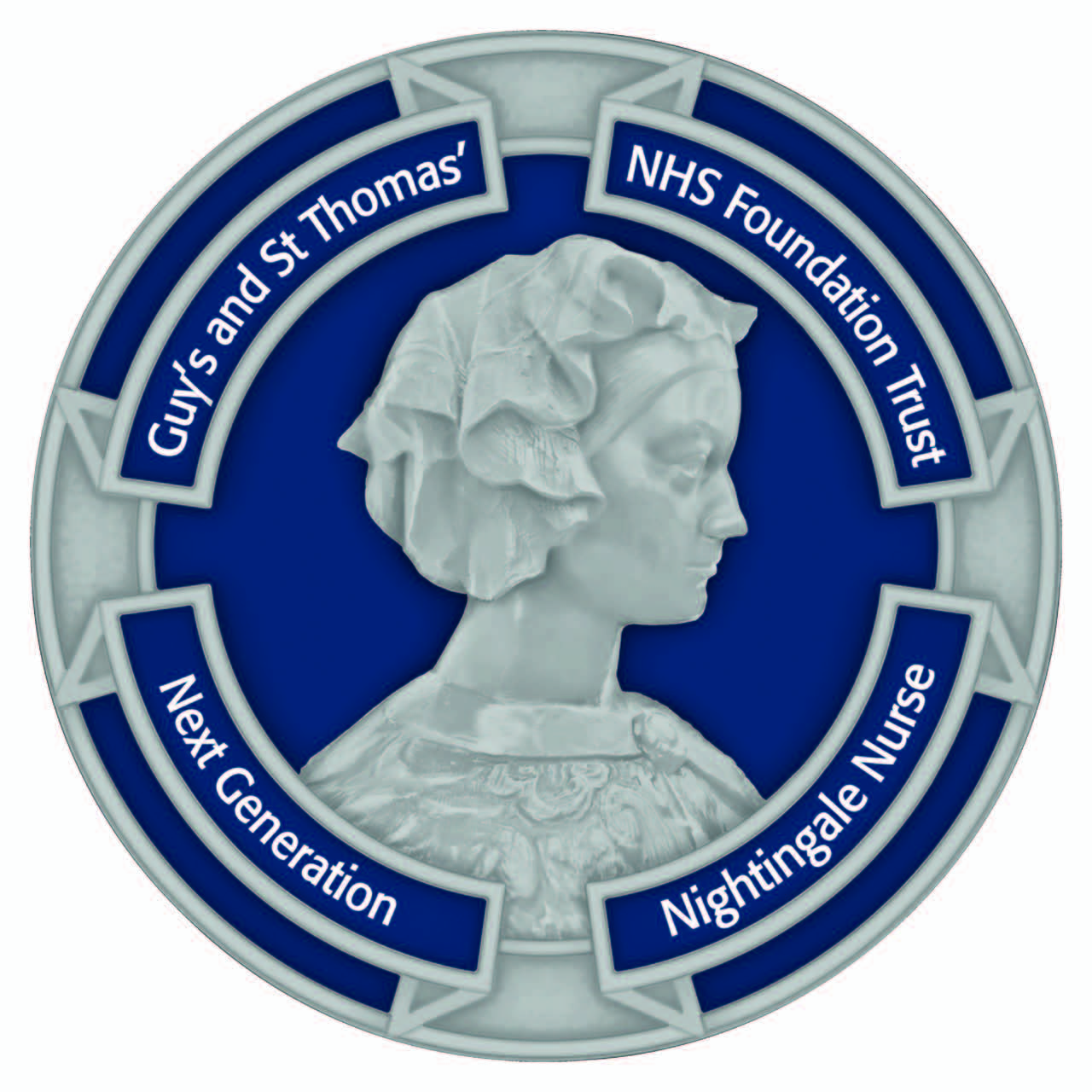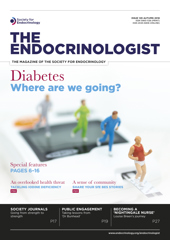
Louise Breen with Jane Cummings, Chief Nursing Officer for England
In September 2017, Guy’s and St Thomas’ NHS Foundation Trust launched the Trust’s new professional award: the Nightingale Nurse Award.
Historically, nurses who trained at St Thomas’ Hospital were known as ‘Nightingales’ and received a Nightingale badge on completion of their training. Prior to May 2018, the badge had last been awarded in 1996, before the Florence Nightingale School of Nursing moved to King’s College London.1
THE NIGHTINGALE NURSE AWARD
The Nightingale Nurse Award is for nurses who are deemed outstanding and who meet the definition of a ‘next generation Nightingale’. In summary, a Nightingale Nurse is an individual ‘who is a dedicated pioneer, innovative with an enquiring mind, who inspires others and goes beyond the call of duty’ and demonstrates the five Trust values in their everyday clinical practice:
- Put patients first
- Take pride in what we do
- Respect others
- Strive to be the best
- Act with integrity. The key requirements and benefits of achieving the Nightingale Nurse Award are highlighted in the Table.
I have worked in the Trust since 1996, predominantly in endocrinology. For me, putting myself forward for the award was about strengthening my affiliation with the Trust and representing the outstanding nursing team we have in endocrinology. I am proud to say I was one of the 74 recipients of the Nightingale Nurse Award on International Nurses’ Day 2018.
WORKING WITH THE SOCIETY
A key part of the Nightingale Nurse Award is providing evidence of practice feedback, and I was able to demonstrate this via my role in the planning committee for the Nurse sessions for the Society for Endocrinology BES conference 2017.
I was tasked with chairing and designing a session, and suggested diabetes insipidus. This topic was on the revolving programme agenda and very topical, given the patient safety alert issued in February 2016: ‘Stage one: warning. Risk of severe harm or death when desmopressin is omitted or delayed in patients with cranial diabetes insipidus’.2
When planning sessions for the Society for Endocrinology BES conference or the Endocrine Nurse Update, the Society’s Nurse Committee jointly discusses the topics for presentation, the potential speakers and the chairs for the session. The programme is never put together in isolation and, once agreed, is ratified by the Society’s Programme Planning Committee.
We were fortunate to secure excellent speakers for the diabetes insipidus session:
- expert consultants Miles Levy and Steve Ball
- co-Chair Pat McBride from The Pituitary Foundation
- a patient with the condition who has a background in healthcare.
For me, the speaker with the most impact was the patient representative, who eloquently described her journey with diabetes insipidus.
I felt the session went very well and, when reflecting on the practice feedback I could use for the Nightingale Nurse Award, this was at the top of the list. I was able to contact the Society for Endocrinology and get specific feedback from this session. I was delighted to find it was one of the more highly rated sessions. This demonstrates how we can use our contributions to Society meetings to support personal objectives and revalidation.
SUPPORTING OTHER NURSES
Going forward, I have asked the Society’s Nurse Committee if it is possible to generate feedback for nurses who participate in the planning, presenting or chairing of Society sessions for their portfolios.
I am also happy to say that the next planning committee for Endocrine Nurse Update will comprise nurses drawn from the wider Society membership, rather than solely Nurse Committee members, thus widening our pool of contributors to Society for Endocrinology nurse events.
The Society’s Nurse Committee offers members a great opportunity to be at the forefront of nursing care in endocrinology and to shape the future for endocrine nurses, importantly in recognition of our role, training and development needs. The more participation we have from the membership, the more progressive and diverse we become. I for one am excited by the fact our membership is growing and that we will see a lot of new faces in the future.
Louise Breen, Advanced Nurse Practitioner–Endocrine, Diabetes & Endocrine Department, St Thomas’ Hospital, London
REFERENCES
- Stevenson J 2018 Nursing Times www.nursingtimes.net/news/education/guys-and-tommys-marks-return-of-nightingale-nurse-title/7024520.article.
- NHS England 2016 Patient Safety Alert www.england.nhs.uk/patientsafety/wp-content/uploads/sites/32/2016/02/psa-desmopressin-080216.pdf.








